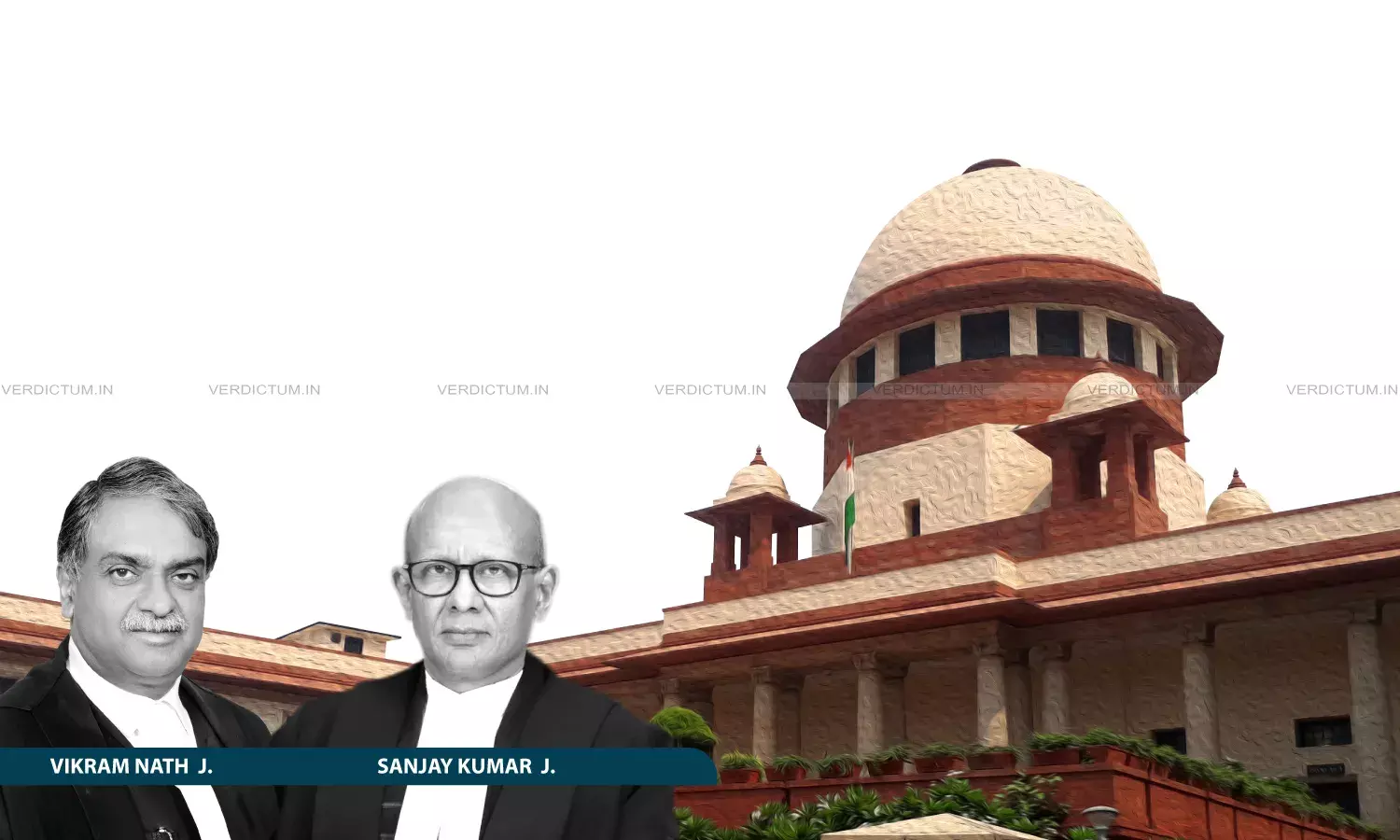Power U/s.482 CrPC Not Constrained By Rigid Formula: Supreme Court Quashes Rape Charges Based On Settlement
The Supreme Court was considering the appeals challenging the common order passed by the Bombay High Court dismissing the petitions filed under Section 482 of the Code of Criminal Procedure.

Justice Vikram Nath, Justice Sanjay Kumar, Supreme Court
The Supreme Court has quashed two FIRs, including one involving rape charges, in light of the fact that the complainant unequivocally expressed her desire not to pursue the case, and a settlement was arrived at between the parties. The Apex Court also observed that the power of the Court under Section 482 CrPC to secure the ends of justice is not constrained by a rigid formula and must be exercised with reference to the facts of each case.
The Apex Court was considering the appeals challenging the common order passed by the Bombay High Court dismissing the petitions filed under Section 482 of the Code of Criminal Procedure, 1973, seeking quashing of criminal proceedings initiated against the appellants.
The Division Bench of Justice Vikram Nath and Justice Sanjay Kumar observed, “At the outset, we recognise that the offence under Section 376 IPC is undoubtedly of a grave and heinous nature. Ordinarily, quashing of proceedings involving such offences on the ground of settlement between the parties is discouraged and should not be permitted lightly. However, the power of the Court under Section 482 CrPC to secure the ends of justice is not constrained by a rigid formula and must be exercised with reference to the facts of each case.”
AOR Praseena Elizabeth Joseph represented the Appellants.
Factual Background
The first FIR came to be registered in the year 2023 under Sections 324, 141, 143, 147, 149, 452, 323, 504, and 506 of the Indian Penal Code, 1860 against the appellants. It was alleged therein that the appellants formed an unlawful assembly and assaulted the complainant and her family members, including her father Prabhakar (appellant in another SLP). The second FIR, filed the following day, contained grave allegations against the appellant, including sexual assault and criminal intimidation.
However, in March 2024, the complainant in the second FIR filed an affidavit expressing her desire not to pursue the prosecution and stating that she had no objection to the grant of bail to the accused. She further affirmed that the matter had been amicably resolved, and she had received Rs 5 lakh towards marriage-related expenses. The appellants moved Criminal Applications before the High Court under Section 482 CrPC seeking quashing of both the FIRs but the High Court concluded that the compromise could not form the basis for quashing proceedings in such cases. Aggrieved thereby, the appellants approached the Apex Court.
Reasoning
The Bench noted that both parties had categorically taken the stand that they had resolved their disputes amicably and were desirous of moving on with their lives. The complainant in the second FIR, now married and residing with her husband, had expressed that continuation of the prosecution would cause further disruption in her personal life, and she did not wish to pursue the matter any further.
The Bench further held, “In the present matter, we are confronted with an unusual situation where the FIR invoking serious charges, including Section 376 IPC, was filed immediately following an earlier FIR lodged by the opposing side. This sequence of events lends a certain context to the allegations and suggests that the second FIR may have been a reactionary step.”
It was noticed that the complainant in the second FIR had consistently maintained, including through an affidavit on record, that she did not support the prosecution and wanted the matter to end. The parties had also amicably resolved their differences and arrived at a mutual understanding.
Taking into account the categorical stand taken by the complainant and the nature of the settlement, the Bench held that the continuation of the criminal proceedings would serve no useful purpose and would only amount to an abuse of process. Thus, allowing the appeals, the Bench set aside the impugned order of the High Court and quashed the FIRs in question.
Cause Title: Prabhakar v. The State of Maharashtra & Anr. (Neutral Citation: 2025 INSC 819)
Appearance
Appellants: AOR Praseena Elizabeth Joseph, M/S. Lawyer S Knit & Co, Advocates Bina Madhavan, S. Udaya Kumar Sagar, S. Tridev Sagar

